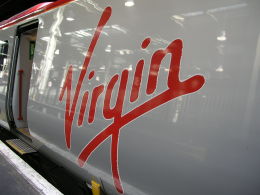Posted 7th December 2012 | 5 Comments
NAO's West Coast verdict condemns DfT

THE NATIONAL AUDIT OFFICE has condemned the Department for Transport's handling of the West Coast franchise competition, saying that the contest collapsed because the DfT was 'confused' and 'lacked management oversight'. It adds that taxpayers are now facing a bill of least £50 million as a result.
The NAO report is the second in 24 hours to voice serious criticisms of the Department, which awarded a short operating contract to Virgin Rail Group yesterday – just three days before the present Virgin franchise expires.
The final West Coast report from Sam Laidlaw was also published yesterday, when transport secretary Patrick McLoughlin made an apologetic statement to the House of Commons in which he described its conclusions as 'extremely uncomfortable reading'.
The Laidlaw report said the West Coast competition failed because of errors made by the DfT, 'specifically around modelling flaws and the Subordinated Loan Facility sizing process'. There was also 'an accumulation of contributory causes including a lack of transparency, inadequate planning and preparation, as well as a complex and confusing organisational structure'.
Today's report from the National Audit Office says the Department delayed the issuing of the invitation to tender by eight months because it had not decided how to handle recent policy changes, such as operators being responsible for stations. There was also 'confusion among Department staff about some aspects of the process'.
National Audit Office head Amyas Morse said: "Cancelling a major rail franchise competition at such a late stage is a clear sign of serious problems. The result is likely to be a significant cost to the taxpayer.
"The failure of essential safeguards raises questions about the Department’s broader management approach, as well as this specific matter.
"It is commendable that, once it uncovered the problems on the franchise, the Department sought to be open about what happened and to investigate further. Among the lessons to be learnt is that staff with line-management responsibilities should be clear that assurance processes are not a substitute for proper supervision and management controls.”
MP Margaret Hodge, who chairs the House of Commons Public Accounts Committee, said the collapse of the West Coast competition had been 'a first-class fiasco'. She warned that the total cost to taxpayers was not yet known, and that DfT rail franchising was now 'in disarray'.
There are more revelations to come. A further report from Eurostar chairman Richard Brown is due to be published at the start of the New Year. Mr Brown has been investigating the wider implications of the methods the DfT uses to assess bids for rail franchises.
His conclusions will be needed before the stalled franchising process can restart. At the moment four contracts are due to be replaced during 2013, but this timetable is now unlikely to be achievable.
Reader Comments:
Views expressed in submitted comments are that of the author, and not necessarily shared by Railnews.

Tim Price, Bestwood Village
For all the mistakes the DfT has made with the franchising process, can someone explain to me how, in an industry that, rightfully, operates a zero tolerance policy with regards to drug and alcohol misuse, the award of a rail franchise to a company chaired by an advocate for the legalisation of hard drugs, would be anything other than a huge conflict of interests?
lorentz, London
The sooner the railways are fully privatised, and taken out of the hands of Government the better.
nick, herts
I think basically them dft didnt ask first for enough of a deposit (n.b. it should have been approx £400 million more) to be held in case the promised payments in latter years do not actually happen, or the franchise is handed in or indeed called in as has happened twice on the east coast line.
and of course first handed back the gw franchise early as they were worried about the financial impact of the reading remodelling and electriication to wales. they did have a 2 yr get out clause and they calculated that is was cheaper to do that then keep the franchise.
Tony Pearce, Reading UK
Thank you for your reply. Putting it into plain English I think it means - The Government doesn't believe some of the estimates and therefore to make sure they get their cut as promised, they want a very large wedge up front to make sure they don't have to send the boys round if the estimates turn out to be a little 'iffy'. It seems that what the Civil Servants asked for wasn't a big enough suitcase full, and Richard, was quick to point this out when he didn't get his Christmas pressie like what he wanted.
Tony Pearce, Reading UK
I think I'm quite clever (well I used to be anyway when I was at school) but I can't understand gobbledygook like the ''specifically around modelling flaws and the Subordinated Loan Facility sizing process' which your report mentions. No wonder everyone in the DfT gets themselves in muddles if they use stuff like this. All everyone needs to know is 'whats your guess at passenger numbers and how much do you think you can screw out of them'.
(The phrase is a direct quote from the report, and the meaning has been explained repeatedly in earlier stories on this site, but here we go again: the subordinated loan is a financial buffer provided by the franchisee against failure – a form of insurance intended to shield the taxpayer. 'Sizing' it means assessing the amount that each loan should be. The financial model is a spreadsheet-based series of calculations related to these loans and similar matters, and it was these that were 'flawed' -- i.e. wrong. Hope that helps.–Editor.)